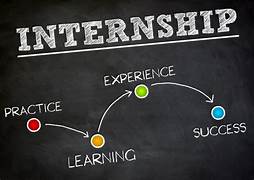How to Build a Strong Resume While in College
Introduction
Building a strong resume during your time in college is one of the best ways to set yourself up for future success. Your resume is your personal marketing tool, showcasing your skills, experiences, and qualifications to potential employers. But how can you create a standout resume while still in school? It’s a question many students ask, and the good news is that you don’t have to wait until graduation to start building it.
In this article, we’ll go through the steps and strategies you can use to build a powerful resume that highlights your strengths, even while you’re still in college. Whether you’re aiming for an internship, part-time job, or your first full-time role after graduation, a well-crafted resume will help you stand out in a competitive job market.
1. Start Early: Don’t Wait for Graduation
The Importance of Getting a Head Start
It’s never too early to begin building your resume. Starting early allows you to accumulate valuable experiences throughout your time in college, whether it’s through internships, volunteer work, or part-time jobs. The more experience you gain early on, the better your chances of securing competitive opportunities later.
Keeping Track of Your Achievements
It’s easy to forget about the small accomplishments you’ve made throughout college, but they can add up and make a big difference on your resume. Keep a running list of your achievements—whether it’s projects completed, leadership roles taken, or new skills learned. This will help you keep your resume updated and prevent you from overlooking important details when the time comes to apply for a job.
2. Focus on Relevant Experiences
Internships and Work Experience
Internships are one of the best ways to gain relevant experience while still in school. They allow you to get hands-on experience in your field of interest, and many internships can even lead to full-time job offers after graduation. Make sure to highlight any internships, part-time jobs, or volunteer work that is directly related to your career goals.
Volunteer Work and Extracurricular Activities
Don’t overlook volunteer work and extracurricular activities. These experiences show potential employers that you have a strong work ethic, initiative, and the ability to work with others. Even if the work isn’t directly related to your career path, skills like teamwork, leadership, and time management are highly transferable to any role.
3. Showcase Your Skills
Technical Skills
Technical skills are essential in today’s job market. Whether it’s proficiency with specific software, programming languages, or other industry-specific tools, these skills can set you apart from other candidates. Be sure to include any technical skills you’ve learned through coursework, projects, or self-study. For example, if you’re a computer science student, list programming languages like Java, Python, or C++.
Soft Skills
Soft skills, such as communication, teamwork, problem-solving, and leadership, are equally important. These skills are often developed through group projects, extracurricular activities, or part-time jobs. Include these soft skills on your resume and provide examples of how you’ve demonstrated them in different situations.
4. Tailor Your Resume for Each Job Application
Customising for Specific Roles
One of the most effective ways to make your resume stand out is to tailor it for each specific job or internship you’re applying for. Look at the job description and make sure your resume highlights the skills and experiences that are most relevant to the role. Customising your resume shows the employer that you’ve put thought into your application and that you have the skills they’re looking for.
Use Keywords from the Job Listing
Many companies use applicant tracking systems (ATS) to filter resumes before they even reach a hiring manager. These systems scan resumes for specific keywords related to the job. To make sure your resume gets through this initial screening, incorporate keywords from the job listing into your resume, especially those related to required skills, qualifications, and responsibilities.
5. Create a Professional Email Address
The Importance of a Professional Email
When applying for jobs, make sure your email address looks professional. Ideally, it should include your name and avoid using nicknames, numbers, or anything too casual. An email like “[email protected]” is much more professional than “[email protected]”. A professional email shows that you’re serious about your job search and makes a positive impression on potential employers.
6. Highlight Achievements with Action Verbs and Metrics
Using Action Verbs
When describing your responsibilities and achievements, always use strong action verbs to convey your impact. Words like “led,” “managed,” “created,” and “achieved” show initiative and leadership. Instead of saying “Responsible for social media marketing,” say “Led social media marketing campaign that increased engagement by 30%.” Action verbs help create a more compelling picture of what you’ve accomplished.
Including Metrics
Whenever possible, quantify your achievements with metrics. Numbers give concrete evidence of your success and make your accomplishments more impactful. For example, if you increased sales, mention the percentage increase. If you led a team, note how many people were on the team. These metrics can make your resume stand out and give employers a clearer sense of your abilities.
7. Keep It Simple and Clean
The Layout and Design
A well-organised resume makes it easier for hiring managers to quickly find the information they need. Stick to a clean, professional layout with clear headings and bullet points. Avoid using too many colours, graphics, or excessive formatting, as this can make your resume look cluttered and unprofessional. A simple and straightforward design will ensure that your resume is easy to read and gets straight to the point.
Resume Length
For college students and recent graduates, a one-page resume is typically sufficient. You don’t need to list every job or experience you’ve ever had. Instead, focus on your most relevant experiences and skills. Keep it concise, but don’t leave out important details that show your qualifications for the job.
8. Include a Strong Objective or Summary (Optional)
Writing a Compelling Objective
Including a brief objective or summary at the top of your resume can be a great way to catch the employer’s attention. This section should briefly describe your career goals and what you can bring to the company. Make it clear that you’re passionate about the role and eager to contribute.
For example:
“Recent business administration graduate with hands-on experience in digital marketing and project management. Seeking to leverage my skills in communication and problem-solving to contribute to the success of a growing company.”
When to Skip It
If you feel that an objective or summary would not add much value, feel free to skip it. Some employers may prefer to dive straight into your experience and skills.
9. Include Relevant Coursework (If Applicable)
When to List Coursework
If you lack professional experience, listing relevant coursework can be helpful. This is especially true if you’ve taken advanced courses or have gained expertise in subjects directly related to the job you’re applying for. Make sure to list courses that show your knowledge in areas like marketing, finance, computer science, or any other field relevant to your career path.
How to List Coursework
Keep the list concise. For example, you could write something like:
“Relevant Coursework: Advanced Digital Marketing, Business Strategy, Data Analysis with Python.”
10. Proofread and Edit
The Importance of Proofreading
One of the most important steps in building your resume is proofreading. Even a small mistake, like a typo or incorrect date, can leave a negative impression on potential employers. After you’ve completed your resume, take the time to carefully read through it, and consider having a friend or mentor review it as well.
Editing for Clarity and Consistency
Ensure your resume is clear, consistent, and well-structured. Check that all your dates, job titles, and formatting are consistent throughout. For example, if you list your job titles in bold, make sure they all appear that way. This attention to detail shows that you care about presenting yourself professionally.
Conclusion
Building a strong resume while in college doesn’t have to be daunting. By gaining relevant experience, focusing on your skills, tailoring your resume for each job, and keeping it professional, you’ll be well on your way to creating a standout resume. The key is to start early, stay organised, and keep updating your resume as you gain new experiences. With a solid resume in hand, you’ll be ready to tackle the job market and land your dream role.
FAQs
1. How early should I start building my resume in college?
Start building your resume as soon as possible. Even your first year is a good time to begin gaining experience, whether through part-time jobs, volunteering, or internships.
2. Should I include my GPA on my resume?
If your GPA is strong (typically 3.5 or above), it’s worth including. However, if it’s lower, you may choose to leave it off and focus more on your skills and experiences.
3. How can I make my resume stand out with little work experience?
Focus on your skills, volunteer work, and extracurricular activities. Employers value transferable skills like teamwork, leadership, and problem-solving.
4. Is it necessary to have a resume summary?
A resume summary is optional, but it can be useful if you want to quickly convey your strengths and career goals. It’s especially helpful for recent graduates with limited experience.
5. How do I quantify my achievements on my resume?
Whenever possible, include numbers or percentages to showcase your impact. For example, “Increased sales by 20% in six months” or “Managed a team of five people on a major project.”
6. Should I list all of my part-time jobs on my resume?
Only include part-time jobs that are relevant to your career goals. If a job helped you develop transferable skills, such as customer service or leadership, include it on your resume.
7. Can I use a template for my resume?
Using a template can be helpful for formatting, but make sure to customise it to highlight your unique experiences and skills. Avoid using overly complex designs that could distract from your content.






